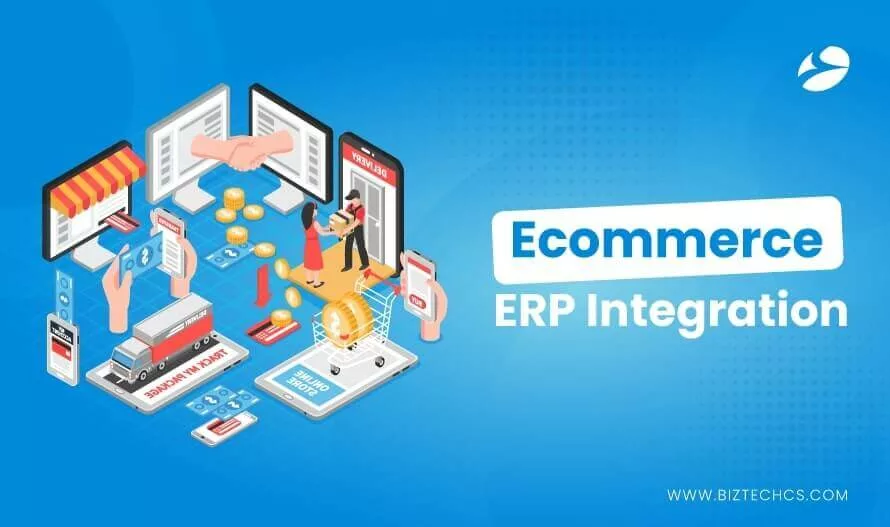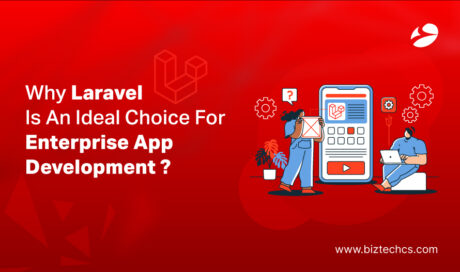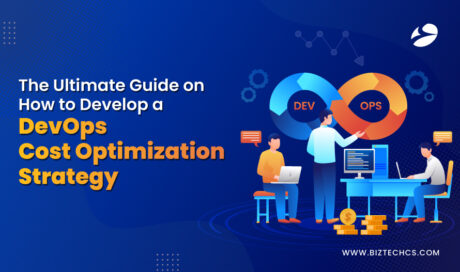Ecommerce ERP Integration: How it Helps Boost Your Store's Performance?
08 Aug, 2023
7 min read
08 Aug, 2023
7 min read
Table of Content:

There’s no debate on how eCommerce stores have become integral to our lives. From grocery shopping to lifestyle and electronics purchases, eStores sell anything and everything permissible.
But, do you realize the amount of effort that goes into managing a perfectly built eCommerce store? You would if you are managing one yourself or planning to get there.
What if you could minimize these efforts, save time and money, and even perform the tasks with precision?
Well, that’s possible with eCommerce ERP integration. A robust and scalable ERP solution might just be the answer to all your business-related problems.
How?
Let’s consider a scenario! For your eCommerce store, you have to perform multiple tasks. For example, tracking inventory, ensuring displayed products on the website are in stock, displaying accurate product prices and discounts, and even categorizing the right products under the right category. Not just that, targeting audiences and recommending relevant products to the right audience are also essential.
Now, if you begin doing every task manually, it will take a lot of time and effort; while the results may not be as accurate. But, an ERP system can help streamline all these processes and more from a centralized platform.
You can further avail of Custom ERP services and customize the system to your unique business needs.
Intrigued how ERP eCommerce integration can help boost your store’s performance? Let’s take a deep dive into how eCommerce and ERP platforms work together and its benefits.

Ecommerce-ERP integration refers to connecting an eCommerce store with a full-fledged ERP system to optimize overall business performance. The integration provides a synchronized environment that helps connect two complex systems together and allows seamless customer and sales data exchange.
Let’s take one of our own eCommerce products ‘PrintXpand’ to understand how integrating ERP works for an eCommerce store.
To begin with, PX (PrintXpand) is a Biztech company extending Enterprise web-to-print solutions and tools so you can streamline your store’s backend operations effortlessly. The tool works seamlessly with all eCommerce giants like Magento, Shopify, PHP, WooCommerce, and more.
While our web-to-print tool works seamlessly for B2B and B2C eCommerce store owners, we also have a Print ERP software ‘PX – Web to Print ERP’ to help manage your print operations through a single interface. Our Odoo-based Print ERP solution also helps us streamline our own business operations.
With the ERP system, you get an advanced dashboard, accurate progress reports, and various modules like Inventory manager, Quotation manager, Print Job manager, Order manager, etc. to help your business run flawlessly.
Now, let’s take a look at some of these features that help streamline your various eCommerce operations.
An eCommerce ERP system, like any other, consists of several modules that offer a number of features and functionalities. Let’s check the most useful features/ benefits of ERP systems here.
By now, you must have figured eCommerce integration with ERP is here to make your life easier.
But, did you know there can be integration on several levels based on your unique needs?
Let’s take a look at the different types!
Want to proceed with eCommerce data integration?
Now that you know the different types, you can choose which type of integration would suit your business needs best.
Need help understanding the best one for your eCommerce business? Our ERP experts can help you with that. Consult our ERP engineers to find the right ERP solution for you.
Time to address the elephant in the room! If you are wondering how to integrate ERP and eCommerce platforms, here’s what you need to do.

Ecommerce website integration with ERP is a complex process. And with the wrong ERP system, your business would suffer even more.
So, it is important that you take your time and choose the right ERP platform for your business. Here are a few things to consider before you decide on the ERP system.
Based on these factors that best suit to your business needs, choose an ERP eCommerce integration platform.
Let’s check a few popular ERP systems that you may pick from for your online business.
When integrating eCommerce with ERP, you have to consider the stakeholders and people associated with your business. Your employees and stakeholders should be able to connect with you and feel comfortable with the evolving business processes.
Thus, it is extremely important that you involve the stakeholders in the decision-making process for your ERP software. Since they are involved with the processes more closely, they can help identify the underlying challenges of your business operations quickly.
Therefore, you will know what you need in the new platform and choose the best ERP for eCommerce business.
You can choose to deploy the ERP system based on the level of security you want for your business. There are various types of deployment you can go for.
In your pursuit of integrating e-commerce with ERP, a reliable partner is essential. You need to find the best ERP engineers who are well familiar with your industry challenges and can help overcome them. Before you hire the best ERP experts, take into consideration:
Looking for a reliable partner with more than a decade and a half of experience in Ecommerce ERP integration? Our ERP experts can help you with that. Connect with our developers today and optimize your business processes like never before!
While there are numerous benefits of eCommerce ERP integration, it comes with its own sets of challenges too. Let’s check some of these challenges that can affect the ERP e commerce integration process and ways your web store can overcome these.
Challenge: If there’s a lack of real-time synchronization between ERP and eCommerce solutions, it can lead to inaccuracies and delays. And even affect the performance of your online store. Suppose a customer orders the last 10 units of a product from your web store and the data isn’t reflected in the ERP immediately. When another customer orders the same product, you won’t have the updated inventory information to accept orders. And even if you accept the order, you won’t have the product in stock to process for delivery.
Solution: This problem can be resolved when you choose ERP tools supporting two-way real-time integration. It will ensure there are no delays and the changes reflect in the two system immediately.
Challenge: When working with different data flows, formats, and structures, mapping them between ERP and eCommerce platforms becomes a challenge. There can be data redundancy, variability, poor data quality, and inconsistencies because of data collection from multiple sources.
Solution: You must invest time to understand the data structure of your online stores and ERP applications to minimize these issues. If needed, invest in a good API or middleware and take the help of ERP experts to form a robust ERP integration strategy.
Challenge: As your online business grows, your existing ERP system has to adapt to evolving needs for enhanced customer experience.
Solution: This problem can be easily solved when you choose scalable ERP solutions for your eCommerce store. Consider investing in cloud-based ERP software to ensure scalability whenever your business grows.
Challenge: Some Inventory software and ERP tools are subscription-based and may even charge additional amounts for maintenance. In some cases, the cost depends based on the ERP modules you choose.
Solution: Before investing in an ERP solution, you need to clearly find out about all the hidden costs such as integration costs, maintenance costs, training costs, post-deployment support costs, etc. It is recommended to plan a budget from the beginning and evaluate the ROI and long-term benefits you shall achieve from this integration.
Challenge: System downtime and disruptions can affect your business processes and customer journey severely.
Solution: This problem can be avoided with thorough testing of your ERP data and processes. Besides, make sure to deploy the changes at off-hours when there’s less traffic and deploy the integration in live environment when it’s completely ready.
Challenge: Legacy systems are complex with data silos. The system generally consists of a customer database, inventory database, account database, and so on; with no connection to each other. While ERP software unifies the various departments and streamlines your system with up to date data. This can lead to a complex and time-consuming integration process.
Solution: With a meticulous ERP migration plan, this issue can be resolved. However, one must ensure to create data backup and maintain consistency. Moreover, hire an Odoo expert to help you out in this venture.
Looking for a reliable partner with more than a decade and a half of experience in Ecommerce ERP integration? Our ERP experts can help you with that. Connect with our developers today and optimize your business processes like never before!
Ecommerce ERP Integration is a transformative solution that empowers online businesses to unlock the full potential of their business and drive unparalleled performance.
The integration enables real-time data exchange, streamlining order processing, inventory management, and customer relationship management. It eliminates manual data entry, reducing the risk of errors and delays, while ensuring accurate and consistent product information across various sales channels
With this unified approach, businesses can effortlessly scale their operations, adapt to evolving market demands, and stay one step ahead of the competition.
Embracing this powerful fusion of systems (Ecommerce and ERP integration) empowers eCommerce entrepreneurs to redefine their store’s performance, elevate customer satisfaction, and create a future brimming with possibilities.

Development
Laravel
128
By Devik Gondaliya
22 Aug, 2024

Development
Devops
125
By Biztech
20 Aug, 2024

Javascript
248
By Devik Gondaliya
13 Aug, 2024